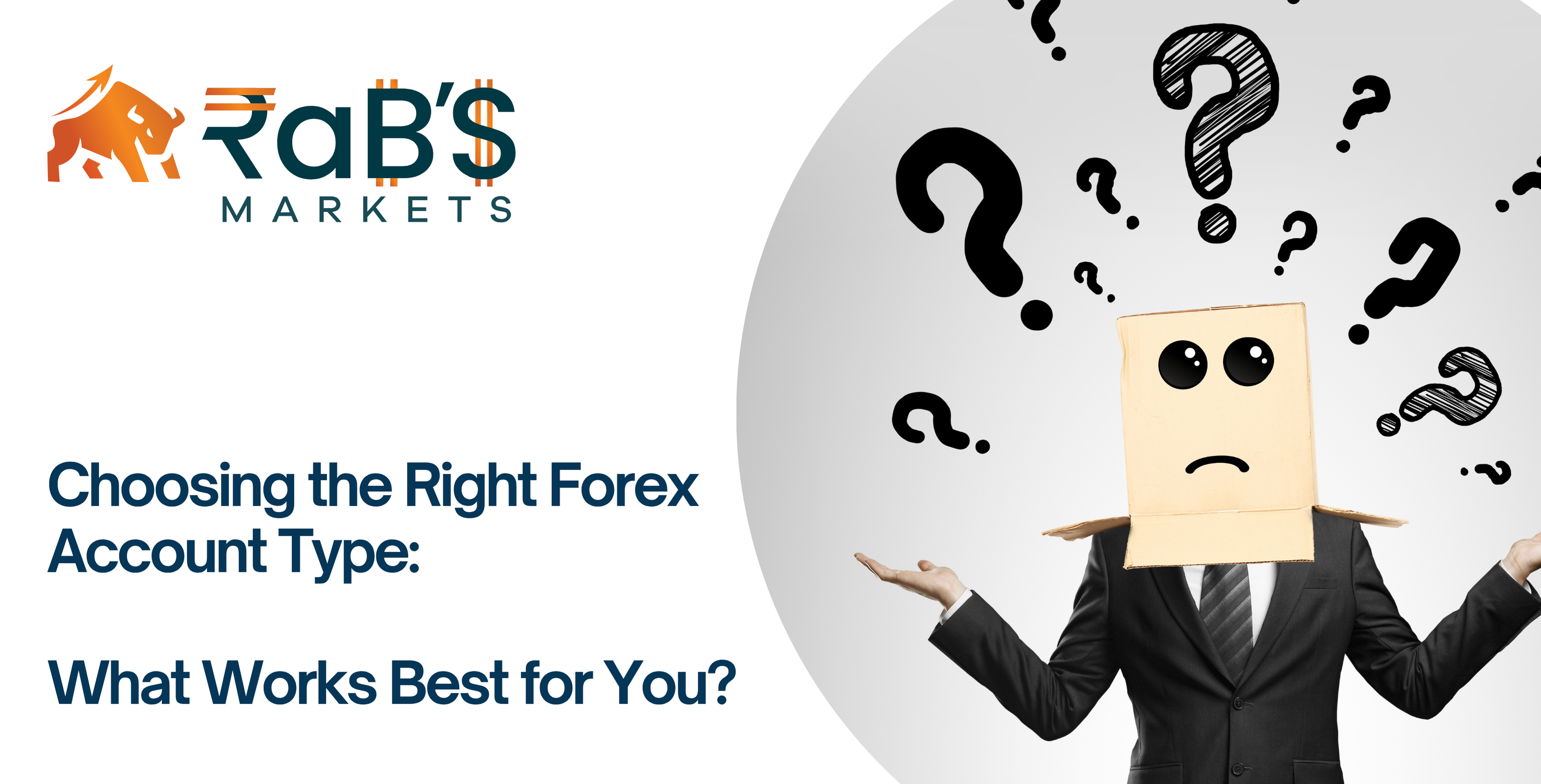When starting your Forex trading journey, one of the first big decisions is choosing the right account type. The account you pick determines your minimum deposit, spreads, commissions, and overall trading costs — all of which directly impact your profits.
Rabs Markets offers six different account types, catering to everyone from beginner traders with a $10 budget to professional traders with $5,000 or more. Let’s break them down so you can decide what’s right for you.
📊 1. Maverick Account – For Professionals
- Minimum Deposit: $5,000
- Spread: RAW spreads (lowest possible)
- Commission: $7 per lot
- Leverage: Up to 1:500 (dynamic)
- Best For: Experienced traders who want the tightest spreads for high-volume trading.
💡 Pro Tip: Ideal if you trade frequently and want minimal spread costs, but you’ll need a higher starting capital.
📊 2. Astra Account – Balanced Choice
- Minimum Deposit: $2,000
- Spread: 1.0 pip
- Commission: Commission-free
- Leverage: Up to 1:500
- Best For: Traders who prefer a mix of low spreads and no commissions.
💡 Pro Tip: A great option for swing traders and mid-volume traders who value simplicity in costs.
📊 3. Vertex Account – Mid-Level Entry
- Minimum Deposit: $1,000
- Spread: 1.5 pips
- Commission: Commission-free
- Leverage: Up to 1:500
- Best For: Intermediate traders looking for a moderate deposit requirement with manageable spreads.
📊 4. Quantum Account – Budget-Friendly
- Minimum Deposit: $500
- Spread: 2.0 pips
- Commission: Commission-free
- Leverage: Up to 1:500
- Best For: Traders starting with a small budget who still want access to reasonable spreads.
📊 5. Zenith Account – Low Deposit Starter
- Minimum Deposit: $100
- Spread: 2.5 pips
- Commission: Commission-free
- Leverage: Up to 1:500
- Best For: Beginners testing the market with minimal investment.
📊 6. Titan Account – Ultra-Low Entry
- Minimum Deposit: $10
- Spread: 3.0 pips (highest cost)
- Commission: Commission-free
- Leverage: Up to 1:500
- Best For: Newcomers who want to try trading without committing much money.
📌 Common Features Across All Rabs Markets Accounts
- Execution: Market execution
- Leverage: Up to 1:500 (dynamic)
- Negative Balance Protection: Yes
- Margin Call Level: 100%
- Stop-Out Level: 30%
⚠️ A Note on Regulation
While the account types offer flexibility, Rabs Markets is regulated by the Anjouan Offshore Financial Authority (AOFA) — considered a lower-tier regulator. This means traders should approach with caution, especially when depositing larger sums.
🏁 Final Thoughts – Which Account Is Right for You?
- New to trading? Start with the Titan or Zenith to learn the ropes without big risk.
- Have some experience? Consider the Quantum or Vertex for a balance between cost and features.
- Professional trader? The Maverick or Astra accounts provide the best trading conditions for high-volume strategies.
Choosing the right account is about balancing risk tolerance, budget, and trading style. Start small, gain experience, and scale up as your skills grow.



